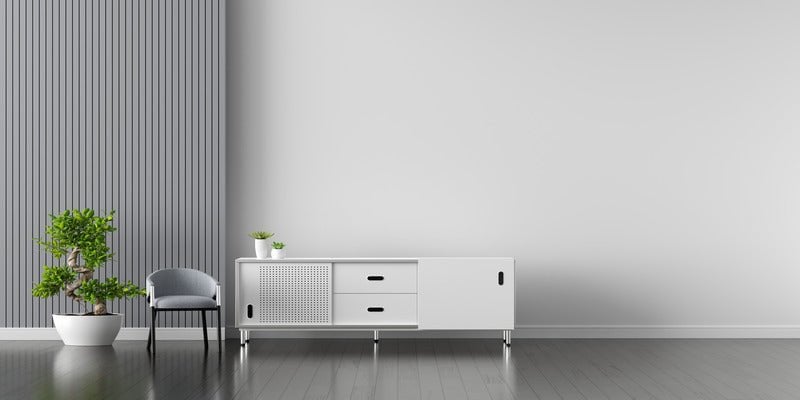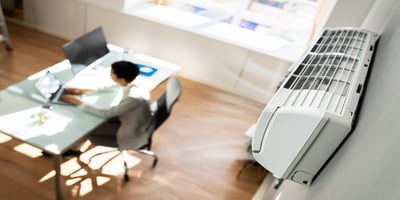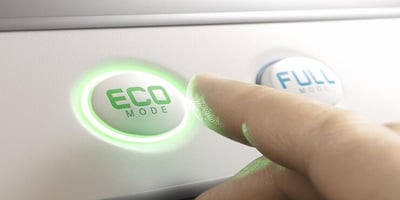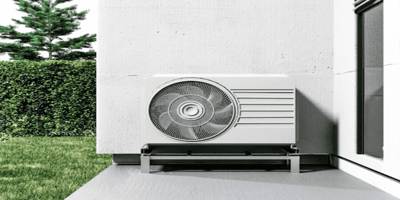Why Is Your Air Conditioner Making Noise and How to Fix It: A Comprehensive Guide

Key Takeaways
- AC noise is typically your system signaling that something needs attention, from loose parts to serious compressor problems that can escalate quickly if ignored.
- Catching noise issues early saves significant money on repairs and energy bills while extending your AC unit's lifespan by several years.
- Many common problems like loose screws, clogged filters, or debris in fan blades can be fixed with basic tools and minimal technical knowledge.
- Prevention through regular maintenance—changing filters, cleaning units, and annual inspections—stops most noise issues before they start.
- Knowing when to call professionals for complex issues like refrigerant leaks, compressor malfunctions, or electrical problems protects both your safety and your investment.
Air conditioning brings immense comfort during hot summer days, operating almost silently in the background. However, when your AC starts making unusual noises, it transforms from a source of comfort into a disruptive annoyance that affects your sleep, productivity, and peace of mind.
A properly functioning, quiet air conditioner is essential for maintaining a peaceful home environment. Excessive noise isn't just irritating—it signals underlying problems that can lead to costly repairs if ignored. This comprehensive guide explores the various types of AC noises you might encounter, their causes, and practical solutions to restore your system's quiet operation and your home's tranquility.
Why Addressing AC Noise Matters
Your air conditioner is not just a cooling system; it's a vital component of your home's comfort and efficiency. When it begins to make noise beyond the norm, it's not just an inconvenience – it's a matter that demands your attention.
Significance of Addressing AC Noise Promptly
Your home should be a sanctuary of peace and comfort, and a properly functioning air conditioner plays a crucial role in maintaining that environment. When your AC starts making unusual noises, it's not simply disturbing your peace—it's often working harder than necessary to keep your home cool. This increased effort translates directly to higher energy consumption and bloated utility bills that compound month after month.
Beyond the financial impact, there's your quality of life to consider. Constant noise disrupts your sleep patterns, makes it harder to focus on work, and can even prevent you from enjoying simple pleasures like watching television or having a conversation without raising your voice. The longer you ignore these sounds, the more damage accumulates within your system, potentially cutting years off your AC unit's expected lifespan.
The most concerning aspect of neglecting AC noise is that it rarely stays the same—it almost always gets worse. What starts as a minor rattle today can escalate into a complete compressor failure next month, transforming a $150 repair into a $3,000 replacement. Early intervention isn't just about stopping the noise; it's about protecting your investment and maintaining your home's comfort throughout the hottest months of the year.
Common AC Noise Problems
Understanding and addressing specific AC noises is crucial for maintaining your system. Below, we've organized each common noise type with its causes and immediate solutions.
1. Humming or Buzzing Noise
What It Sounds Like: A continuous hum or electrical buzzing sound, ranging from subtle to loud.
Possible Causes:
- Normal Operation: A slight humming sound is typical when your AC is running, particularly if it's a central air system.
- Loose Parts: Loose or vibrating parts, such as refrigerant lines or electrical components, can create a buzzing noise.
- Compressor Issues: A malfunctioning compressor can produce a louder and irregular buzzing sound.
Solutions:
- DIY Fix: Ensure the compressor is securely mounted and doesn't vibrate against other components. Tighten any loose bolts or mounts. Check for loose refrigerant lines and secure them with proper mounting brackets.
- Professional Assistance: If the noise is persistent, irregular, or accompanied by performance issues, consult an HVAC technician to assess and repair compressor problems or electrical issues.
2. Rattling or Clanking Noise
What It Sounds Like: A repetitive rattling, clanking, or metallic shaking sound.
Possible Causes:
- Loose Screws or Bolts: Loose hardware within the AC unit can result in a rattling noise.
- Debris in the Fan: Foreign objects or debris trapped in the fan blades can create a clattering sound.
- Worn Motor Bearings: If the motor bearings are worn out, they can produce a persistent rattle.
Solutions:
- DIY Fix: Safely turn off the power to the unit and inspect the fan blades. Remove any debris or foreign objects. Inspect the unit for loose components and tighten screws or bolts as needed.
- Professional Assistance: If the problem persists after cleaning and tightening, or if motor bearings need replacement, consult a technician. Worn bearings require professional service to prevent motor failure.
3. Clicking or Ticking Noise
What It Sounds Like: Repetitive clicking or ticking sounds, especially during startup or shutdown.
Possible Causes:
- Expansion and Contraction: As the AC unit cycles on and off, temperature fluctuations can cause metal components to expand and contract, resulting in clicking or ticking sounds.
- Electrical Issues: Faulty electrical connections or relays can create repetitive clicking noises.
Solutions:
- DIY Fix: If clicking occurs only during startup and shutdown, this is typically normal thermal expansion. However, monitor for frequency increases.
- Professional Assistance: If clicking is constant, rapid, or accompanied by the unit not starting properly, call a technician immediately. This could indicate failing relays, capacitor issues, or thermostat problems.
4. Hissing or Whistling Noise
What It Sounds Like: A high-pitched hissing or whistling sound.
Possible Causes:
- Refrigerant Leaks: A hissing noise can indicate a refrigerant leak, which is a serious issue that requires immediate attention.
- Air Leaks: Whistling sounds may occur due to air leaks in the ductwork or around the unit.
- Clogged Filter: A dirty air filter can restrict airflow and create a whistling noise as air is forced through small openings.
Solutions:
- DIY Fix: Check and replace the air filter if it's clogged or dirty. Inspect visible ductwork for gaps or loose connections and seal them with appropriate duct tape or mastic sealant.
- Professional Assistance: If you suspect a refrigerant leak (often accompanied by reduced cooling performance), turn off the unit and call an HVAC technician immediately. Refrigerant leaks are hazardous and require professional repair and recharging.
5. Vibration or Rumbling Noise
What It Sounds Like: A low rumbling or vibrating noise that seems to travel through walls or floors.
Possible Causes:
- Loose Mounts: Loose or improperly installed units can produce vibrations that transmit through the structure.
- Unbalanced Fan: An unbalanced or damaged fan can generate vibrations and rattling sounds.
- Poor Installation: Units installed without proper vibration isolation can transfer operational vibrations to the building structure.
Solutions:
- DIY Fix: Install vibration isolation pads or mounts under the unit to reduce transmission of vibrations to the building structure. Ensure all mounting bolts are properly tightened.
- Professional Assistance: If vibrations persist after installing isolation pads, or if the fan appears unbalanced, consult an HVAC technician for proper balancing or reinstallation.
6. Grinding or Squealing Noise
What It Sounds Like: A harsh grinding, squealing, or screeching sound, often high-pitched.
Possible Causes:
- Worn Motor Bearings: Deteriorating bearings in the motor or fan can create grinding noises.
- Belt Issues: In older units with belt-driven systems, worn or misaligned belts can cause squealing.
- Lack of Lubrication: Some AC components require periodic lubrication; lack of it can cause grinding sounds.
Solutions:
- DIY Fix: For units with accessible motor ports, apply appropriate lubricant according to manufacturer specifications (consult your owner's manual).
- Professional Assistance: Motor bearing replacement and belt adjustments require professional service. Grinding noises should be addressed quickly to prevent motor failure. Turn off the unit and call a technician if grinding is severe.
7. Duct Noise
What It Sounds Like: Whooshing, rattling, or banging sounds coming from vents or ductwork.
Possible Causes:
- Poor Insulation: Inadequate insulation can transmit air movement sounds through the ducts.
- Loose Ductwork: Unsecured ducts can rattle or bang as air flows through them.
- Undersized Ducts: Ducts that are too small for the airflow can create excessive whooshing sounds.
Solutions:
- DIY Fix: Add insulation to ducts or areas where noise is transmitted. Ensure that ducts are properly sealed to reduce noise leakage. Secure loose ductwork with proper mounting brackets or straps.
- Professional Assistance: For extensive duct noise issues or duct resizing needs, consider consulting a professional HVAC contractor for insulation, sealing improvements, or duct system evaluation.
 How to Diagnose AC Noise Issues
How to Diagnose AC Noise Issues
Isolating the root cause of your AC unit's noise is crucial for effective troubleshooting. Follow these steps to identify the source:
Step 1: Visual Inspection
- Examine the exterior of your AC unit for loose or damaged components, such as screws, bolts, or panels.
- Inspect the fan blades for any foreign objects or debris that might be causing noise.
- Check the surrounding area for loose items that could be vibrating and contributing to the noise.
Step 2: Auditory Inspection
- Listen carefully to the noise your AC unit is making. Try to identify the type of noise (e.g., humming, rattling, clicking) and its source (e.g., indoor or outdoor unit).
- Pay attention to when the noise occurs – is it during startup, continuous operation, or shutdown?
- Note any patterns: Does it happen only in certain weather conditions or times of day?
Step 3: DIY Checks
- If you suspect loose components, use the appropriate tools to tighten screws and bolts.
- If debris is causing noise, safely turn off the power to the unit and remove any obstructions from the fan blades.
- Check and replace the air filter if it appears dirty or clogged.
Step 4: Professional Evaluation
- If you can't identify the source of the noise or suspect a more complex issue (e.g., compressor problems or refrigerant leaks), call a professional HVAC technician.
- Technicians have the expertise and specialized tools to conduct thorough evaluations and diagnose problems accurately.
Essential Maintenance Tips to Prevent AC Noise
The secret to a quiet air conditioner isn't complicated—it's consistency. Regular maintenance keeps your system running smoothly and catches small problems before they become noisy headaches. Think of it like maintaining a car: neglect the oil changes and tire rotations, and eventually you'll hear all sorts of concerning sounds coming from under the hood.
Start with the simplest task that has the biggest impact: your air filter. A clogged filter forces air through tiny gaps, creating whistling sounds while making your entire system strain unnecessarily. Check it monthly during heavy use seasons and replace it every one to three months depending on factors like pets, allergies, and how often you run your AC.
Your outdoor unit deserves attention too. Nature loves to fill that space with leaves, grass clippings, seeds, and dirt that interfere with airflow and get caught in moving parts. Take a few minutes each month to clear debris from around and inside the unit, and maintain at least two feet of clearance on all sides. While you're there, look over the fan blades for damage or buildup—dirty or bent blades create vibrations and noise that travel throughout your system.
Don't overlook the less obvious maintenance tasks. Walk around your unit periodically checking for loose screws, bolts, or panels that might rattle during operation. A quick tightening session with a screwdriver can eliminate several annoying sounds at once.
If your AC unit has oil ports (check your owner's manual), add a few drops of appropriate lubricant annually to keep motors and bearings running quietly. This simple step prevents the grinding and squealing that comes from dry, friction-prone parts.
Finally, schedule an annual professional tune-up before cooling season begins. A trained technician can spot worn parts, clean components you can't easily reach, check refrigerant levels, and ensure everything works together efficiently. This yearly investment typically costs between $80 and $150 but prevents far more expensive emergency repairs during the hottest days of summer.
When to Call a Professional
While DIY solutions work wonderfully for many AC noise problems, certain situations demand professional expertise and specialized equipment. Knowing the difference between a simple fix and a complex repair protects both your safety and your wallet.
Refrigerant leaks represent one of the most serious issues you'll encounter. That hissing sound combined with reduced cooling performance means your system is losing the chemical that makes cooling possible. Refrigerant isn't just expensive—it requires special handling and EPA-certified technicians to work with it properly. Turn off your unit immediately if you suspect a leak and call a professional.
Compressor problems demand immediate professional attention as well. This component is essentially the heart of your cooling system, and when it starts making loud banging or grinding sounds, you're looking at potential failure of the entire unit. A compressor replacement can cost anywhere from $1,300 to $2,500, so catching problems early through professional diagnosis can sometimes save the component with less expensive repairs.
Electrical issues should never be tackled without proper training and tools. Persistent clicking from relays, buzzing from electrical components, or any burning smells indicate problems with your system's wiring or controls. Air conditioners run on significant voltage that can cause serious injury or start fires if mishandled.
 Upgrading to a Quieter AC Unit
Upgrading to a Quieter AC Unit
Sometimes repair and maintenance can only do so much. If your air conditioner is more than 10-15 years old and constantly creating noise despite your best efforts, upgrading to a modern unit might be your most practical solution. Today's air conditioning technology has advanced dramatically, with manufacturers prioritizing quiet operation alongside efficiency improvements.
Modern AC units achieve remarkable noise reduction through multiple innovations. Variable-speed compressors have largely replaced the old single-speed models that created jarring starts and stops. These newer compressors ramp up and down gradually, maintaining consistent temperatures while operating at whisper-quiet levels much of the time. Many premium units now run between 25 and 55 decibels—comparable to a quiet library or soft rainfall.
The efficiency gains alone can justify an upgrade even before considering noise reduction. Units manufactured in the past five years typically achieve SEER ratings of 16 or higher, meaning they use significantly less electricity to produce the same cooling. Your energy bills could drop 20-40% compared to an older system, and many homeowners recoup their investment through energy savings within 7-10 years.
When shopping for a quieter AC unit, decibel ratings provide your best comparison metric. Anything below 60 decibels qualifies as relatively quiet, while premium models operating at 50 decibels or less are exceptionally quiet. Don't just look at the number though—ask about the technology behind it. Variable-speed or inverter technology particularly stands out for noise reduction since these systems avoid the loud cycling of traditional units.
Fixing the Problem Now
Understanding and addressing AC noise is essential for maintaining your home's comfort and protecting your investment. The strange sounds your air conditioner makes are often early warning signs of problems that, if caught quickly, can be resolved with minimal expense and effort.
Throughout this guide, we've explored common AC noises, their causes, and practical solutions ranging from simple DIY fixes to professional repairs. Regular maintenance remains your best defense against noise problems—simple habits like changing filters, clearing debris, and scheduling annual inspections prevent most issues before they disrupt your peace.
Whether you choose to tackle minor repairs yourself or call in professionals for complex problems, taking action promptly saves money, extends your system's lifespan, and ensures the cool, quiet comfort your home deserves. Don't let AC noise become your new normal—use the knowledge from this guide to restore tranquility to your living space.
FAQ
Is it normal for my AC to make some noise?
A gentle hum or soft whoosh is perfectly normal. However, sudden changes in noise level, new sounds, or anything loud enough to disrupt conversation indicates a problem worth investigating.
Can a dirty air filter really cause my AC to be noisy?
Yes, clogged filters force air through tiny gaps, creating whistling or hissing sounds while making your motor work harder. Replacing filters every 1-3 months eliminates this common problem for just a few dollars.
How much does it cost to fix a noisy air conditioner?
Simple fixes cost $75-$200 or nothing if you DIY. Mid-range repairs like fan motor replacement run $200-$600. Major issues like compressor problems can reach $1,000-$2,500, which is why addressing noise early matters.
Should I turn off my AC if it's making a loud grinding noise?
Yes, immediately. Grinding indicates serious mechanical failure, usually worn bearings about to fail completely. Continuing to run it can transform a $400 repair into a $2,500 disaster.
How often should I schedule professional AC maintenance?
Once yearly in early spring is minimum. If you use your AC heavily year-round, consider twice-yearly service. Annual checkups cost $80-$150 but prevent far more expensive emergency repairs.
Can I reduce AC noise without replacing the entire unit?
Usually yes. Vibration pads cost $20-$50, ductwork insulation helps considerably, and replacing specific worn components addresses noise affordably. However, if your system is old and needs frequent repairs, replacement might be more cost-effective long-term.






































